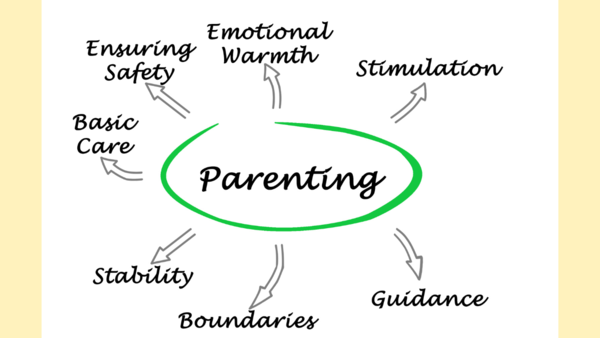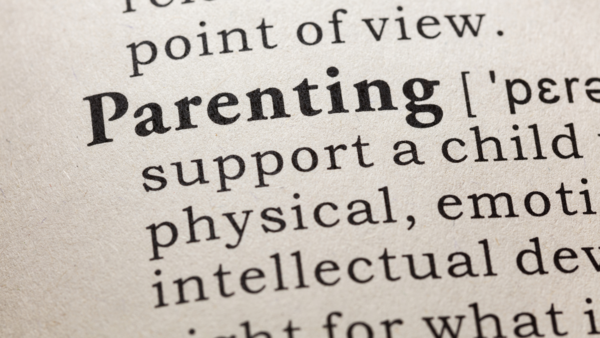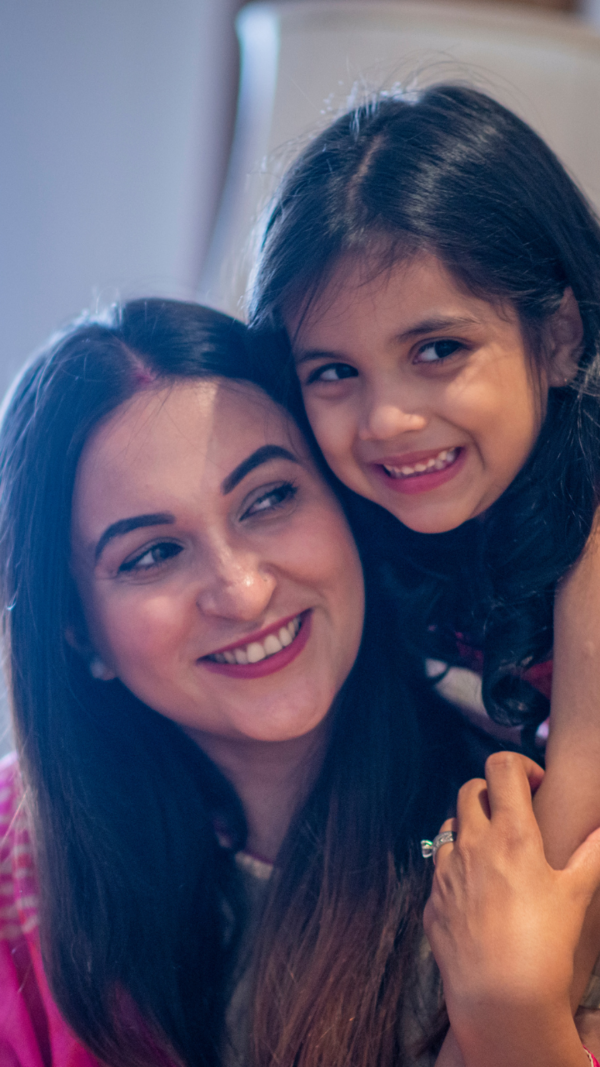Trending
Exploring the parenting styles: Which one is best for you?
The article discusses various parenting styles, including authoritarian, permissive, authoritative, gentle, and uninvolved. It highlights the importance of finding the right balance based on the child's needs and family dynamics. Experts suggest that authoritative parenting is generally effective for children's development.

One thing that’s common amongst all the parents is the doubt if they’re parenting their children right! While some mothers spiral down through guilt for their toddler laying on the floor for their Elsa Barbie, fathers come home rushing from work only to find their little brats in bed. Do we ever get it right? How will they grow up to be? Are we providing enough energy and time to our child’s growth and development? Several questions like that blur the rational thinking in our minds and often lead to self doubts and a quest for perfect parenting style that can act as a cheat guide to help our children excel as adults.
Parenting styles play a crucial role in shaping children's development, behaviour, and overall well-being. Research has identified several predominant styles including authoritarian, authoritative, permissive, and uninvolved. Each style represents a different approach to parenting, characterised by varying levels of control, warmth, and responsiveness. Deciding which parenting style is best for you involves understanding each style's characteristics and considering how they align with your values, goals, and your child's needs.
With all said, raising children is a beautiful, messy, and ever-evolving journey. There's no one-size-fits-all approach, and the best parenting style flourishes in your unique family dynamic. But with so much information (and sometimes misinformation) out there, it can be overwhelming to navigate the different philosophies. Let's explore some of the most common styles to help you find your centre.
Authoritarian parents are strict, demanding, and value obedience. They have high expectations but may not explain the reasons behind rules. Punishment is common for rule violations. While this style can produce well-behaved children, it may also lead to resentment, rebellion, and a lack of critical thinking skills due to the emphasis on unquestioning obedience.

However, there’s a catch! According to Baumrind's research, authoritarian parents are frequently punitive and harsh in order to maintain an absolute standard of behaviour leaving little room for the child's decision-making or rationales.
Permissive parents, on the other hand, prioritise freedom and flexibility. They establish few rules and allow children significant independence. This fosters creativity and self-reliance but may also lead to a lack of structure and boundaries.
According to Janvi, Life & Wellness Strategist at Inha Wellness, "Permissive parents are nurturing and accepting but have few demands or rules. They avoid confrontation and may take on more of a friend role than a parental one. While this style can create a positive emotional environment, children may struggle with self-regulation and boundaries, potentially leading to behavioural issues and difficulties in social settings."
Baumrind's study also found that children raised by permissive parents do poorly in a variety of segments. Because their parents have few or no expectations of them, these children have nothing to aim for. Because their parents do not establish or enforce any rules or guidelines, these children struggle to develop effective problem-solving and decision-making abilities.
Children raised by permissive parents may be more prone to delinquency and substance abuse. They exhibit more anger and less emotional understanding since they do not learn to manage their emotions appropriately.
Helicopter parents hover closely, constantly monitoring their child's every move. They're often overly involved in academics and activities, aiming to shield them from any potential misstep. While their intentions are pure, this constant intervention can hinder a child's ability to problem-solve and develop resilience.
It is normal for parents to do whatever they can to keep their children safe and healthy, but children want room to learn and grow independently, without Mom or Dad hanging over them, according to new research published by the American Psychological Association. The study, published in the journal Developmental Psychology, discovered that overly controlling parenting can impair a child's ability to manage his or her emotions and conduct.

Authoritative parents strike a balance between the two extremes. They set clear expectations and boundaries but are also open to communication and negotiation. They provide warmth and support, nurturing their child's independence while offering guidance. This style fosters self-esteem, responsibility, and strong decision-making skills.
Aashmeen Munjaal, Ontologist, Mental health and relationship expert says, “Authoritative parenting is characterised by high levels of responsiveness and demandingness. Parents who employ this style are nurturing, warm, and responsive to their children's emotional needs. They also set clear and reasonable expectations for behaviour and enforce consistent limits. Unlike authoritarian parenting, authoritative parents use reasoning and explanations rather than strict control and punishment. This approach fosters a positive parent-child relationship built on mutual respect and understanding.”
Authoritative parents set clear rules and expectations but are also responsive to their children's needs. They use reasoning and explanations to enforce rules rather than relying solely on punishment. This style encourages independence, self-discipline, and social competence in children while maintaining a warm and nurturing environment.
Gentle Parenting
Gentle Parenting is a way of parenting that avoids using shame, blame, or punishment. It focuses on creating a partnership where both parents and children have a say. Parents use consistent, kind boundaries instead of strict discipline. This approach aims to make children feel safe and understood, which helps build a healthy relationship between parents and their children.
According to research by the National Institute Of Health, gentle parenting practices may not be effective for every situation or child. Researchers discovered that gentle parenting strategies are less beneficial for children who exhibit more serious, demanding conduct, such as aggression, or who are more defiant or difficult to handle.

Uninvolved Parenting
Uninvolved parents are low in both responsiveness and demandingness. They provide little guidance, attention, or emotional support. This style can have profound negative effects on children's emotional development, leading to low self-esteem, behavioural problems, and difficulties in forming healthy relationships.
According to Cox et al's research, parents who adopt this style prefer to be perceived as friends rather than parents, are less concerned with rules or structure in the house, and prioritise their own needs and wishes over those of their child. Uninvolved (or rejecting) PS is characterised by low levels of control and expectations on a kid, as well as low degrees of warmth and responsiveness.
According to Sandeep Kumar, Parenting expert, founder, Baatu Tech, “Ultimately, the "best" style isn't a rigid category, but rather a spectrum. You might find yourself leaning towards authoritative parenting with a dash of permissiveness when it comes to playtime, while needing to be more authoritarian when it comes to safety concerns.”
Determining which parenting style is "good" depends on various factors, including the child's temperament, cultural background, and the family's values and goals. However, research and experts often highlight authoritative parenting as generally effective and beneficial for children's development.
When considering the Indian topography, culture and societal norms, Authoritative (also known as balanced) parenting is often regarded as the most effective type since it gives children both security and encouragement. However, mixing permissive or authoritarian components into a balanced approach might be beneficial when parenting a child with unique demands.
According to Baumrind, Larzelere, and Owens' research, authoritative parents demonstrate strong acceptance and behavioural control, low psychological control, and high responsiveness and warmth to their children. They are conceived as affectionate, encouraging, and controlling in a manner that encourages child autonomy. They direct the kid in a rational situation-based manner that values both autonomy and conformity; they establish clear norms and use reasoning to enforce them in order to encourage open communication, support children's independence, and exhibit love and affection. Authoritarian behaviour was linked to favourable child outcomes such as self-reliance and adjustment. A great number of studies have demonstrated that children of authoritative parents are cooperative, pleasant, emotionally stable, and have high academic success.
Remember, parenting is a journey of constant learning and adaptation. There will be times when you need to adjust your approach based on the situation or your child's changing needs. The key is to be open, loving, and consistent, creating a safe and nurturing environment where your child can blossom.
Parenting styles play a crucial role in shaping children's development, behaviour, and overall well-being. Research has identified several predominant styles including authoritarian, authoritative, permissive, and uninvolved. Each style represents a different approach to parenting, characterised by varying levels of control, warmth, and responsiveness. Deciding which parenting style is best for you involves understanding each style's characteristics and considering how they align with your values, goals, and your child's needs.
With all said, raising children is a beautiful, messy, and ever-evolving journey. There's no one-size-fits-all approach, and the best parenting style flourishes in your unique family dynamic. But with so much information (and sometimes misinformation) out there, it can be overwhelming to navigate the different philosophies. Let's explore some of the most common styles to help you find your centre.
Authoritarian Parenting
Authoritarian parents take a firm stance. They set clear rules and expect unquestioning obedience. While this approach can foster discipline, it can also stifle a child's individuality and hinder open communication.
Authoritarian parents are strict, demanding, and value obedience. They have high expectations but may not explain the reasons behind rules. Punishment is common for rule violations. While this style can produce well-behaved children, it may also lead to resentment, rebellion, and a lack of critical thinking skills due to the emphasis on unquestioning obedience.

However, there’s a catch! According to Baumrind's research, authoritarian parents are frequently punitive and harsh in order to maintain an absolute standard of behaviour leaving little room for the child's decision-making or rationales.
Permissive Parenting
Permissive parents, on the other hand, prioritise freedom and flexibility. They establish few rules and allow children significant independence. This fosters creativity and self-reliance but may also lead to a lack of structure and boundaries.
According to Janvi, Life & Wellness Strategist at Inha Wellness, "Permissive parents are nurturing and accepting but have few demands or rules. They avoid confrontation and may take on more of a friend role than a parental one. While this style can create a positive emotional environment, children may struggle with self-regulation and boundaries, potentially leading to behavioural issues and difficulties in social settings."
Baumrind's study also found that children raised by permissive parents do poorly in a variety of segments. Because their parents have few or no expectations of them, these children have nothing to aim for. Because their parents do not establish or enforce any rules or guidelines, these children struggle to develop effective problem-solving and decision-making abilities.
Children raised by permissive parents may be more prone to delinquency and substance abuse. They exhibit more anger and less emotional understanding since they do not learn to manage their emotions appropriately.
Helicopter Parenting
Helicopter parents hover closely, constantly monitoring their child's every move. They're often overly involved in academics and activities, aiming to shield them from any potential misstep. While their intentions are pure, this constant intervention can hinder a child's ability to problem-solve and develop resilience.
It is normal for parents to do whatever they can to keep their children safe and healthy, but children want room to learn and grow independently, without Mom or Dad hanging over them, according to new research published by the American Psychological Association. The study, published in the journal Developmental Psychology, discovered that overly controlling parenting can impair a child's ability to manage his or her emotions and conduct.

Authoritative Parenting
Authoritative parents strike a balance between the two extremes. They set clear expectations and boundaries but are also open to communication and negotiation. They provide warmth and support, nurturing their child's independence while offering guidance. This style fosters self-esteem, responsibility, and strong decision-making skills.
Aashmeen Munjaal, Ontologist, Mental health and relationship expert says, “Authoritative parenting is characterised by high levels of responsiveness and demandingness. Parents who employ this style are nurturing, warm, and responsive to their children's emotional needs. They also set clear and reasonable expectations for behaviour and enforce consistent limits. Unlike authoritarian parenting, authoritative parents use reasoning and explanations rather than strict control and punishment. This approach fosters a positive parent-child relationship built on mutual respect and understanding.”
Authoritative parents set clear rules and expectations but are also responsive to their children's needs. They use reasoning and explanations to enforce rules rather than relying solely on punishment. This style encourages independence, self-discipline, and social competence in children while maintaining a warm and nurturing environment.
Gentle Parenting
Gentle Parenting is a way of parenting that avoids using shame, blame, or punishment. It focuses on creating a partnership where both parents and children have a say. Parents use consistent, kind boundaries instead of strict discipline. This approach aims to make children feel safe and understood, which helps build a healthy relationship between parents and their children.
According to research by the National Institute Of Health, gentle parenting practices may not be effective for every situation or child. Researchers discovered that gentle parenting strategies are less beneficial for children who exhibit more serious, demanding conduct, such as aggression, or who are more defiant or difficult to handle.

Uninvolved Parenting
Uninvolved parents are low in both responsiveness and demandingness. They provide little guidance, attention, or emotional support. This style can have profound negative effects on children's emotional development, leading to low self-esteem, behavioural problems, and difficulties in forming healthy relationships.
According to Cox et al's research, parents who adopt this style prefer to be perceived as friends rather than parents, are less concerned with rules or structure in the house, and prioritise their own needs and wishes over those of their child. Uninvolved (or rejecting) PS is characterised by low levels of control and expectations on a kid, as well as low degrees of warmth and responsiveness.
Finding the best parenting style for your child
According to Sandeep Kumar, Parenting expert, founder, Baatu Tech, “Ultimately, the "best" style isn't a rigid category, but rather a spectrum. You might find yourself leaning towards authoritative parenting with a dash of permissiveness when it comes to playtime, while needing to be more authoritarian when it comes to safety concerns.”
Determining which parenting style is "good" depends on various factors, including the child's temperament, cultural background, and the family's values and goals. However, research and experts often highlight authoritative parenting as generally effective and beneficial for children's development.
What’s the best parenting style for Indian kids?
When considering the Indian topography, culture and societal norms, Authoritative (also known as balanced) parenting is often regarded as the most effective type since it gives children both security and encouragement. However, mixing permissive or authoritarian components into a balanced approach might be beneficial when parenting a child with unique demands.
According to Baumrind, Larzelere, and Owens' research, authoritative parents demonstrate strong acceptance and behavioural control, low psychological control, and high responsiveness and warmth to their children. They are conceived as affectionate, encouraging, and controlling in a manner that encourages child autonomy. They direct the kid in a rational situation-based manner that values both autonomy and conformity; they establish clear norms and use reasoning to enforce them in order to encourage open communication, support children's independence, and exhibit love and affection. Authoritarian behaviour was linked to favourable child outcomes such as self-reliance and adjustment. A great number of studies have demonstrated that children of authoritative parents are cooperative, pleasant, emotionally stable, and have high academic success.
The final word
Remember, parenting is a journey of constant learning and adaptation. There will be times when you need to adjust your approach based on the situation or your child's changing needs. The key is to be open, loving, and consistent, creating a safe and nurturing environment where your child can blossom.
Deepika Padukone Radiates Happiness with Baby Bump in Yoga Photo; Ranveer Singh Reacts
End of Article
FOLLOW US ON SOCIAL MEDIA











